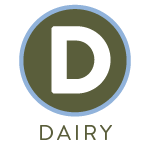The Ins and Outs of Kosher Food: Dairy & Meat
Introduction
Kosher food is a term used to describe food that complies with the strict dietary standards of traditional Jewish law. For many Jews, keeping kosher is not just about health or food safety, but it is also about reverence and adherence to religious tradition. The laws that govern kosher food, known as kashrut, provide a comprehensive framework of rules that determine which foods can be consumed and how they must be produced, processed, and prepared.
Kosher food certification ensures that a food product meets all the necessary requirements to be considered kosher. This certification is given by authorized organizations that inspect and verify that the food meets the kosher standards. Kosher certification labels can be found on packaged products, indicating that the food has been produced and processed according to kosher guidelines.
The laws of kosher food are rooted in the Torah, the Jewish book of sacred texts. They outline which animals are allowed to be eaten, the process of ritual slaughter (Shechita) for meat, the prohibition of mixing meat and dairy products, and the guidelines for preparing and consuming kosher food.
In this blog, we will explore the basics of kosher food, including the significance of kosher certification, the laws of kosher meat and dairy, and the impact of kosher food on health and lifestyle. We will also discuss common misconceptions about kosher food and provide practical guidelines for keeping meat and dairy apart in the kitchen.
Understanding Kosher Food Basics
Kosher food is food that complies with the dietary laws set forth in traditional Jewish law. The term “kosher” means “fit” or “proper” and is derived from the Hebrew word “kashér.” These dietary laws, known as kashrut, determine which foods are allowed or forbidden and how they must be produced, processed, and prepared. Kosher food certification ensures that a food product meets all the necessary requirements to be considered kosher. This certification is given by authorized organizations that inspect and verify that the food meets the kosher standards.
The Significance of Kosher Certification
Kosher certification is of great significance in the world of kosher food. It serves as a guarantee that a product has been produced and processed in accordance with the dietary laws set forth in Jewish law. Kosher certification ensures that the food meets all the necessary requirements to be considered kosher.
For Jewish people who keep kosher, the presence of a kosher certification label on a product gives them the assurance that the food is permissible to consume. It is a way for them to adhere to their religious dietary guidelines and to maintain the integrity of their kosher kitchen.
Kosher certification also plays a crucial role for those who rely on kosher food for health or dietary reasons. It provides them with the confidence that the food they are consuming meets the highest standards of quality and purity.
The kosher certification process involves thorough inspections and audits by authorized certifying agencies. These agencies assess the ingredients, production processes, and facilities of food manufacturers to ensure compliance with kosher standards. Once a product has been certified as kosher, it is then allowed to display the kosher certification symbol on its packaging, indicating its kosher status.
Common Misconceptions About Kosher Foods
There are several common misconceptions about kosher food that often lead to confusion. Let’s debunk some of these myths:
- Kosher meat is not just any meat that has been blessed by a rabbi. It refers to meat that has been produced and processed in accordance with the dietary laws of kashrut.
- Kosher equipment and utensils are not simply cleaned with water to make them kosher. They must undergo a specific process of kosherization, which involves cleaning, boiling, and sometimes immersing them in boiling water.
- Kosher dairy products are not just regular dairy products with a kosher symbol on the packaging. They must come from kosher animals and be produced and processed using kosher equipment and practices.
- Kosher food does not necessarily mean healthier or more nutritious. While kosher guidelines do promote certain principles of cleanliness and quality, the nutritional value of a kosher food product may vary just like any other food product.
- Kosher food is not only for Jewish people. Many non-Jewish individuals and communities choose to consume kosher food for various reasons, including dietary preferences, health concerns, and ethical considerations.
The Detailed Laws of Kosher Meat
The laws of kosher meat are detailed and specific. They outline which animals are permitted to be consumed and how they must be slaughtered and prepared in accordance with Jewish dietary law.
Permitted and Forbidden Animals in Kosher Tradition
In kosher tradition, certain animals are permitted for consumption, while others are forbidden. Kosher meat must come from animals with cloven hooves and that chew their cud, such as cows, sheep, and goats. These animals are considered kosher mammals. However, animals like pigs, rabbits, squirrels, camels, kangaroos, and horses are not considered kosher and their meat is forbidden. Additionally, certain birds are permitted for consumption, such as chickens, geese, quail, dove, and turkey, while predatory or scavenger birds like eagles, owls, gulls, and hawks are not kosher. These guidelines ensure that kosher meat comes from animals that are considered clean and suitable for consumption according to Jewish dietary laws.
The Process of Ritual Slaughter (Shechita)
The process of ritual slaughter, known as shechita, is an essential aspect of producing kosher meat. Shechita involves slaughtering the animal in a specific way that is considered humane and in accordance with Jewish law. A trained and certified shochet performs the slaughter, using a sharp knife to make a swift and precise cut to sever the major arteries and veins in the neck of the animal. This method ensures a quick and painless death for the animal. The blood is then drained from the meat, as consuming blood is prohibited in kosher dietary laws. The process of shechita is carefully regulated to ensure the highest standards of animal welfare and adherence to kosher guidelines.
Dairy in the Kosher Diet
Dairy products play an important role in the kosher diet. However, there are specific guidelines that must be followed to ensure the dairy is considered kosher. Dairy products must come from a kosher animal, such as cows or goats, and be prepared using kosher utensils and equipment. In addition, there is a concept called chalav yisrael, which refers to dairy products that have been produced under the direct supervision of a Jewish person. Chalav yisrael products are considered to be of higher kosher status. It is also important to note that dairy products cannot be consumed or prepared alongside meat or meat products in a kosher kitchen.
The Importance of Chalav Yisrael
Chalav yisrael holds great importance in the Jewish tradition and is considered to be of higher kosher status. Chalav yisrael refers to dairy products that have been produced under the direct supervision of a Jewish person. This ensures that the entire process, from milking the cows or goats to packaging the final product, is carried out in accordance with kosher guidelines. Many Jewish individuals and communities choose to consume chalav yisrael products as an extra measure of adherence to their dietary laws. However, it is important to note that not all kosher-certified dairy products are chalav yisrael, so individuals should look for the specific certification on the packaging to ensure they are consuming chalav yisrael dairy products.
Identifying Kosher Dairy Products
Identifying kosher dairy products can be done by looking for the appropriate kosher certification on the packaging. Kosher certification labels indicate that the product has met all the necessary requirements to be considered kosher. When it comes to dairy products, it is important to ensure that they have been produced using kosher ingredients and equipment that have not been in contact with any non-kosher products. In addition, some kosher certifications may indicate whether a product is chalav yisrael, meaning it has been produced under strict Jewish supervision. Hard cheese, such as cheddar or Swiss, can also be identified as kosher by looking for the kosher certification symbol on the packaging.
The Prohibition of Mixing Meat and Dairy
One of the fundamental principles of kosher dietary laws is the prohibition of mixing meat and dairy products. According to kosher tradition, any food categorized as meat may never be served or eaten at the same meal as a dairy product. This includes not only the consumption of both meat and dairy together, but also the preparation and cooking of meat and dairy in the same kitchen or using the same utensils and equipment. After consuming meat, there must be a designated waiting period before consuming any dairy products. The length of the waiting period varies among different Jewish customs, but it is usually between 1 and 6 hours.
The Origins and Reasons Behind the Separation
The separation of meat and dairy in the kosher diet has its origins in Jewish religious texts and traditions. According to Jewish law, the prohibition stems from the commandment in the Torah not to “boil a kid in its mother’s milk.” This commandment has been interpreted as a general prohibition against mixing meat and milk, based on the understanding that the milk represents the nurturing aspect of the mother and the meat represents the animal’s life force. By separating meat and dairy, individuals are reminded of the importance of preserving life and respecting the boundaries between different aspects of creation. This separation also serves as a way to maintain the integrity of kosher dietary laws and ensure that kosher observers adhere to the highest standards of religious practice.
Practical Guidelines for Keeping Meat and Dairy Apart
Keeping meat and dairy apart in a kosher kitchen involves following practical guidelines to ensure the highest standards of kosher observance. One of the key guidelines is the use of separate utensils for meat and dairy. This includes separate pots, pans, plates, and utensils that are designated exclusively for either meat or dairy use. Some households even have separate sinks and dishwashers to avoid any chance of cross-contamination. It is also important to wait a designated amount of time between consuming meat and dairy. The waiting period varies among different Jewish customs but is typically between 1 and 6 hours. This waiting period allows for proper digestion and ensures that there are no remnants of the meat in the digestive system before consuming dairy. The adherence to these practical guidelines helps maintain the kosher status of the kitchen and ensures that individuals are following the dietary laws of Jewish tradition.
Kosher Food Preparation Techniques
Kosher food preparation techniques involve following specific guidelines to ensure that the food remains kosher. This includes using kosher equipment and maintaining a kosher kitchen. Kosher equipment refers to utensils, appliances, and cookware that are designated exclusively for either meat or dairy use. These items must be kept separate and not used interchangeably to prevent any cross-contamination. A kosher kitchen is one where all the necessary elements are in place to maintain the kosher status of the food being prepared. This includes following the rules of separating meat and dairy, maintaining cleanliness and hygiene, and ensuring that all ingredients used are kosher-certified. Following these preparation techniques is crucial to maintaining the kosher status of the food and upholding the dietary laws of Jewish tradition.
Ensuring the Purity of Kitchen Utensils and Appliances
To ensure the purity of kitchen utensils and appliances in a kosher kitchen, it is essential to designate separate items for meat and dairy use. This means having separate sets of utensils, pots, pans, plates, and other cookware that are exclusively used for either meat or dairy. These items should never be mixed or used interchangeably to prevent any cross-contamination. It is also important to keep kosher equipment and utensils separate from non-kosher items, such as those used for preparing non-kosher food. This separation ensures that the kosher status of the kitchen is maintained and that all food prepared in the kitchen remains kosher. Regular cleaning and inspection of utensils and appliances is necessary to ensure that they are in compliance with kosher guidelines.
Kosher Foods in the Market
Kosher foods have gained popularity in the market due to increased demand for diverse food options and dietary preferences. Many food manufacturers and producers now seek kosher certification for their products to cater to the growing market of kosher consumers. Kosher certification labels, featuring a kosher symbol, help consumers identify which products meet the strict dietary standards of traditional Jewish law. These symbols provide assurance that the food has been produced in accordance with kosher guidelines and has undergone rigorous inspection and certification processes. With the rise of online shopping and specialty stores, finding kosher foods has become increasingly convenient, making it easier for individuals to incorporate kosher products into their shopping routines.
Navigating Kosher Certification Labels
Kosher certification labels play a vital role in helping consumers navigate the world of kosher foods. These labels indicate that a product has undergone a certification process and meets the strict dietary standards of traditional Jewish law. The kosher symbol, often displayed prominently on the packaging, provides assurance to consumers that the food has been produced in accordance with kosher guidelines. However, it is important to note that there are numerous kosher certification symbols, each representing different certifying organizations. Familiarizing yourself with the different symbols can be helpful in identifying the specific kosher certification that meets your dietary needs and preferences. Reading packaging carefully and looking for the appropriate kosher symbol ensures that you are selecting and consuming kosher-certified products.
Tips for Shopping Kosher on a Budget
Shopping for kosher food on a budget can be challenging, but there are ways to make it more affordable. Here are some tips for budget shopping for kosher food:
- Plan your meals in advance to avoid unnecessary purchases and waste.
- Buy in bulk when possible to take advantage of cost savings.
- Look for sales and discounts on kosher products.
- Consider purchasing kosher products from ethnic grocery stores or online retailers, as they may offer competitive prices.
- Explore alternative protein sources, such as legumes, tofu, and plant-based proteins, which can be more budget-friendly.
- Cook from scratch using basic ingredients rather than relying on pre-packaged kosher meals or convenience foods.
- Consider joining a local co-op or buying club to access bulk and discounted prices.
- Compare prices and shop around to find the best deals on kosher products.
Conclusion
In conclusion, understanding the intricacies of Kosher food, both in terms of dairy and meat, illuminates a rich tradition steeped in history and dietary laws. From the significance of Kosher certification to the prohibition of mixing meat and dairy, each aspect holds cultural and religious importance. By following these guidelines, individuals not only adhere to dietary restrictions but also gain insight into a lifestyle that promotes purity and mindfulness in food choices. Navigating the world of Kosher foods offers not just health benefits but also a connection to a heritage that values tradition and community. Embracing Kosher practices can enhance both physical well-being and spiritual fulfillment.
Frequently Asked Questions
Can Vegetarian or Vegan Foods Be Considered Kosher?
Yes, vegetarian and vegan foods can be considered kosher. However, they must meet certain guidelines and be certified as kosher. Additionally, vegetarian and vegan foods are often classified as pareve, meaning they are neither meat nor dairy.
How Do Restaurants Obtain Kosher Certification?
Restaurants can obtain kosher certification by working with a kosher certifying agency or a local rabbi. The certification process involves ensuring that the restaurant follows the strict guidelines of Jewish law in terms of food preparation, ingredients, and kitchen practices.



